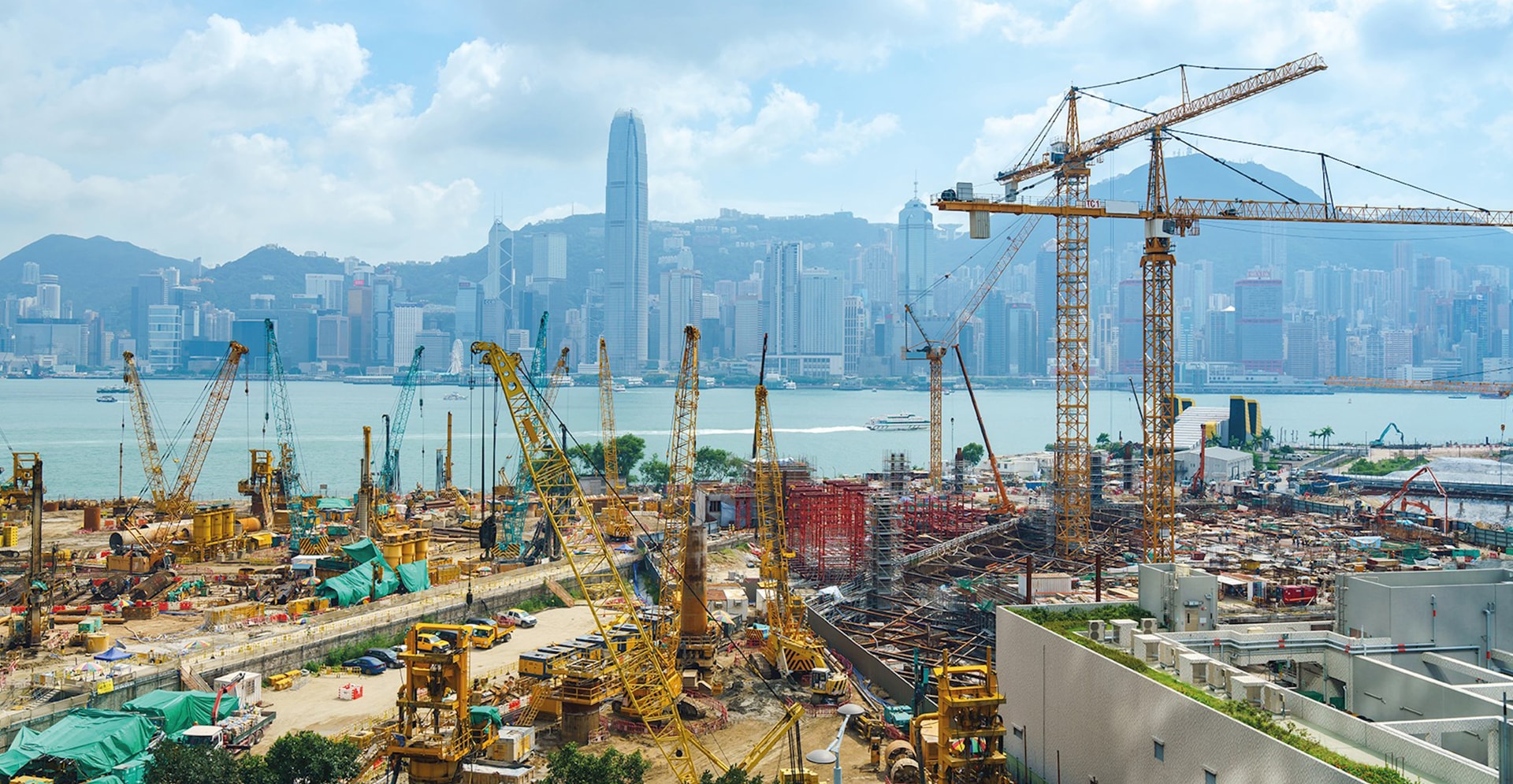Whether you run a construction company, work for one or have ever been a customer looking to have something built, we all know that construction projects are frequently delivered late and for higher costs than originally planned. In fact, this is so often the case that many construction companies price premiums to cover risk and commercial exposure, as well as unnecessary allowances for waste and inefficiencies. Think about that for a second. No other industry can thrive with that type of overall performance, yet we seem to think that the construction industry can remain viable under these circumstances. Clearly this is folly. At Arcadis, we believe that construction clients should invest in three specific areas to help ensure future success.
Delivering better assets and delivering assets better
An enormous amount of architectural and engineering skill and know-how goes into erecting a skyscraper or even small house. There’s no doubting that construction work is highly technical and precise. Nevertheless, the truth is that large swathes of the industry lag in terms of focus on and investment in technical innovation. Those that are willing to step up and embrace digital innovation, deliver better assets, often substantially reducing the total cost of ownership. These leading companies also enhance how those assets are delivered in terms of efficiency, predictability and safety. As Simon Rawlinson, Arcadis’ Head of Strategic Research once said to me, “For every project that defaults to conventional measures and takes on a ‘not this time around’ approach to innovation, we miss out on one of the many incremental steps needed to create fundamental change in how we design, build and operate assets.”
The reality is that projects are often squeezed by cost and time pressures, low margins and other issues that lead construction companies to bypass innovation, both as part of the building that’s being delivered but also in the way it is constructed. But consider the fact that we live in digital world now and it starts to become clear that this is not ideal. Far too many companies have not yet adopted processes or digital technology, such as the use of Building Information Modelling (BIM), data analytics, visualization techniques or automation. These enable leading companies to design, construct and operate buildings and intelligent spaces, that better meet the needs of their users, often more effectively and efficiently than conventional measures. So, investing in innovation will allow companies to create smart buildings and reduce costs and to deliver those building more efficiently.
Consumers are king and queen
Buildings and other structures are used by people. It might seem like an obvious point but all too often, clients in the construction industry, their advisors and supply chain can lose sight of this fact when they are designing and building structures. The most successful companies are those that have a clear vision and strategy, as well as sharp focus in deploying their technical expertise and services to benefit end users. These leading companies start with understanding the user experience and then use that knowledge to inform their strategy and create their vision. This helps them excel in local markets and gives them a leg up in efforts to access international markets.
By 2050, around 70% of the global population will live in cities and therefore building need to play their role in delivering benefits to citizens. Shrewd construction companies maintain a laser-like focus on end-user benefits because the ways in which people will experience and use assets will determine the how successful those assets will ultimately become. Local knowledge is becoming a less important factor and end user desires are becoming a primary factor as the likes of WeWork, Amazon, Alibaba and UBER are demonstrating in our cities. Construction companies in more local and regional markets will need to be mindful of trends and adapt accordingly. Solutions that better meet consumer demands, ease customers’ pain points and deliver enhanced social value will be well-received by the people living in urban spaces.
Buildings of the future must protect and fight back
As the world experiences increased extreme weather events and other disruptions, there’s more demand for smart buildings that are resilient and help mitigate the effects climate change. In that context, more and more data is being collected, contributing to an improved understanding of the potential effects of changing climate conditions on citizens and the buildings we occupy. While different markets will respond in different ways, partly due to regulation, consumer voices are becoming louder on this subject. The trends towards intelligent buildings, which lessen impacts on the environment and society, mean this is an area for innovation and over-delivery against current norms.
According to the Global Alliance for Buildings and Construction, around the world, constructing buildings and operating them created 36% of final energy use and nearly 40% of energy‐related CO2 emissions in 2017. So, it’s perhaps no surprise that there’s increasing demand for more sustainable construction projects and buildings with features that will reduce negative impacts on the environment and society. The buildings we develop for the future must take this into account. Assets need to more sustainable and leave less of a footprint. They also need to be more resilient.
Smart decisions creating long-term value
In 2019 and beyond, smart investment to address these three issues will be a predictor of future success. We demonstrate this point throughout Arcadis’ International Construction Costs (ICC) 2019: Smart Decisions Creating Long-term Value, which is now available for download. ICC 2019 is a leading reference point for relative comparison of global construction costs. This year the comparison covers 100 cities and every major market.
Arcadis leverages its industry-leading data, asset knowledge and technical expertise to deliver this annual report. ICC 2019 provides a comparative indexation of construction costs around the world. Arcadis developed its comparative cost comparison index for 100 cities, covering 20 building functions, based on a survey of construction costs, review of market conditions and professional judgement from its experts globally. The report contains data on forecasted, 2019 tender price index growth for all 100 cities and a forecast for construction industry growth in 45 countries. ICC 2019 also gives market insights and recommendations on the factors clients should be considering in order to continue being successful in the future.
Learn more about how smart decisions can create long-term value for construction companies. Download the report here.






